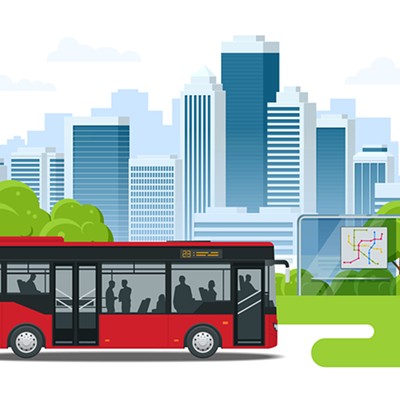The report’s findings combined the performance in Oklahoma City with service provided in Guthrie, Edmond and Norman. The report indicated a disconnect between accessibility and usability: More than twice as many people can access transit than jobs that can be reached using transit, and the typical transit user can reach only a small percentage of low- and middle-skill industries like retail and manufacturing.
For people familiar with transportation, the report findings come as no surprise. To me, the question is what we, as a region, want to do about it.
The report focused on transit as part of a successful 21st-century metropolitan economy. The report said transit is all about getting people to jobs. If you study the origins of public transportation in OKC, you will discover the early streetcar system was designed to provide the vital connection between where people lived and worked. As the bus system replaced the streetcar system, it was designed to bring workers living in suburban areas to downtown. This design is known as a “hub and spoke” system.
But over the last several decades, people and jobs have moved farther outward in the metropolitan area. This sprawl has created a metro very dependent upon the automobile. The hub and spoke system allows for very little suburban-to-suburban connection, yet these suburban locations provide significant employment opportunities.
Therein lies the problem for making wholesale changes. A majority of riders have no other transportation option. Redesigning the transit system, without the influx of additional funding, means taking service away from some riders in favor of better serving others. When more than half of all transit riders are taking transit to work, making a dramatic change in design can eliminate a current rider’s ability to reach work.
Additional steps can be taken. The report underscored factors that impact transit access, including land-use patterns, or where people choose to live and where businesses locate. Cities need to look at public policies addressing growth patterns and encourage closer coordination between transportation, housing and economic development planning. It is very difficult to have uncontrolled growth and a cost-efficient and effective transit system.
Over the course of the last year, many of the cities in the metropolitan area met to discuss what it will take to develop a regional transportation system offering multiple travel options to all citizens. Future meetings are planned. Transportation planning will continue in an effort to develop a successful transportation network that has different components working together to form a balanced multimodal system.
As the report stated, transit on its own does not dictate access. Other factors matter greatly for how well transit ultimately functions. Everyone can benefit from broadly coordinated policies encouraging proactive strategies connecting metro growth with transportation investments and a focus to create opportunities for all citizens.
Cain, an Edmond resident, is the administrator of the Central Oklahoma Transportation and Parking Authority.












